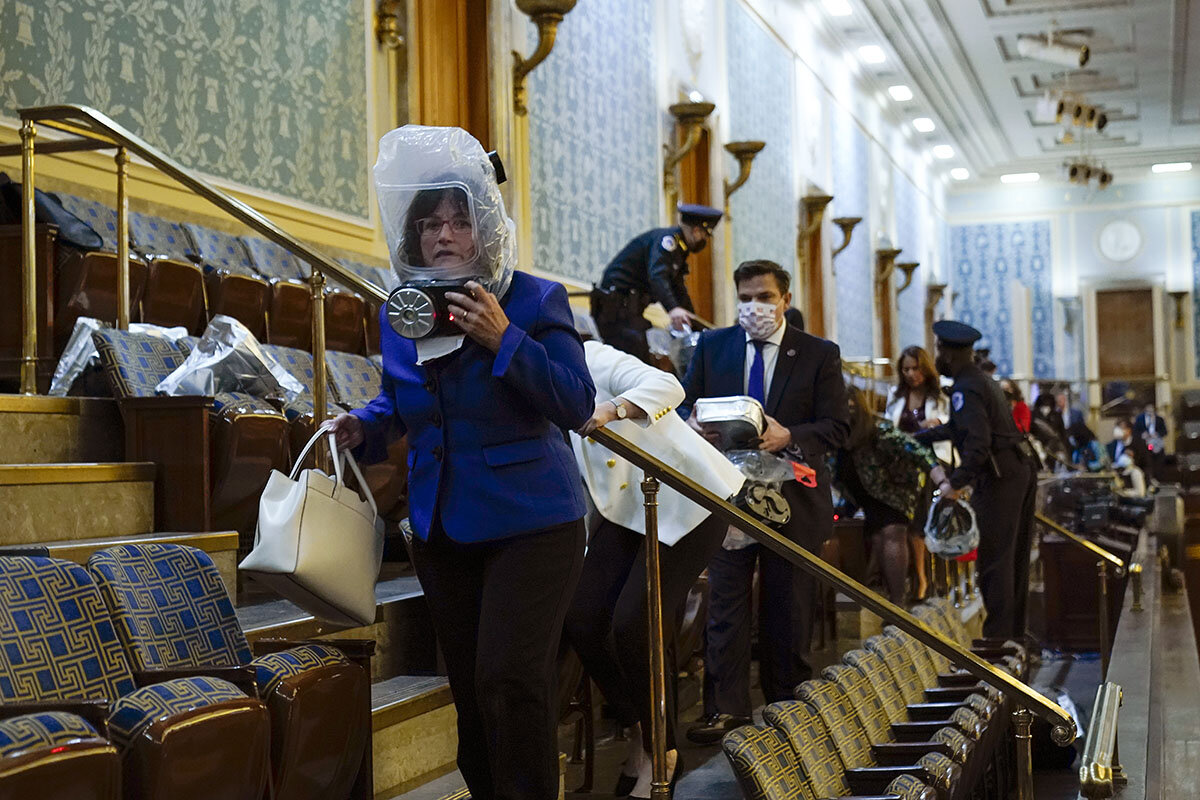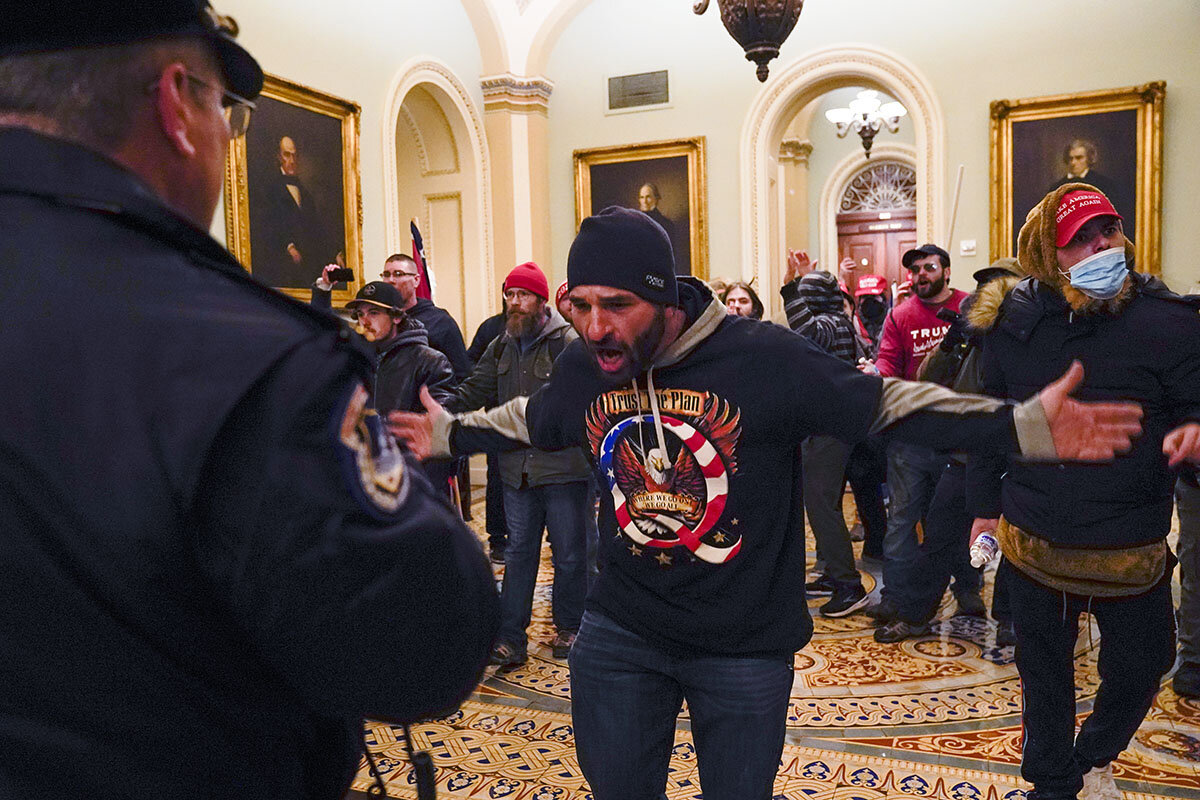Americans knew this would be a difficult day. But many were left to consider the state of the republic as they watched the violent climax of President Trump’s refusal to accept the election results play out on Capitol Hill.
Monitor Daily Podcast
- Follow us:
- Apple Podcasts
- Spotify
- RSS Feed
- Download
 David Clark Scott
David Clark Scott
Grace can be a hard quality to sustain, especially in American politics.
On the steps of the nation’s Capitol Wednesday, violent protesters battled police, storming the seat of representative government in a bid to disrupt the final step – counting electoral votes – before the inauguration of President-elect Joe Biden.
Tear gas reportedly filled the Capitol rotunda, forcing members of Congress and the media to be evacuated just as members had begun discussing the Arizona vote in their chambers.
The Monitor’s Christa Case Bryant found herself next to Sen. John Hickenlooper of Colorado. “I asked him if he thought this crisis might help unify the Senate,” she told me by phone. “He said he’d just been discussing that with a colleague. As we all scurried out together, shoulder to shoulder, it struck me that a crisis of this magnitude might push the two parties to demonstrate some of the ideals of democracy they were just discussing in the chamber.”
Despite this violent protest, ultimately, effective governance, effective democracy, is about compromise. Arguably, Georgians just voted for their leaders to exercise restraint, respect, and inclusion.
When asked by NPR how he planned to serve all Georgians, not just those who voted for him, Democrat Raphael Warnock paraphrased Martin Luther King Jr.: “[King] said that we’re tied in a single garment of destiny, caught up in an inescapable network of mutuality, whatever affects one directly affects all indirectly.” Senator-elect Warnock added that “we have to look out for one another.”
Grace in victory is easy. Grace in defeat is difficult. But even harder is grace in action. American voters expect that from their leadership. Stay tuned, we’ll have more coverage in tomorrow’s edition.










